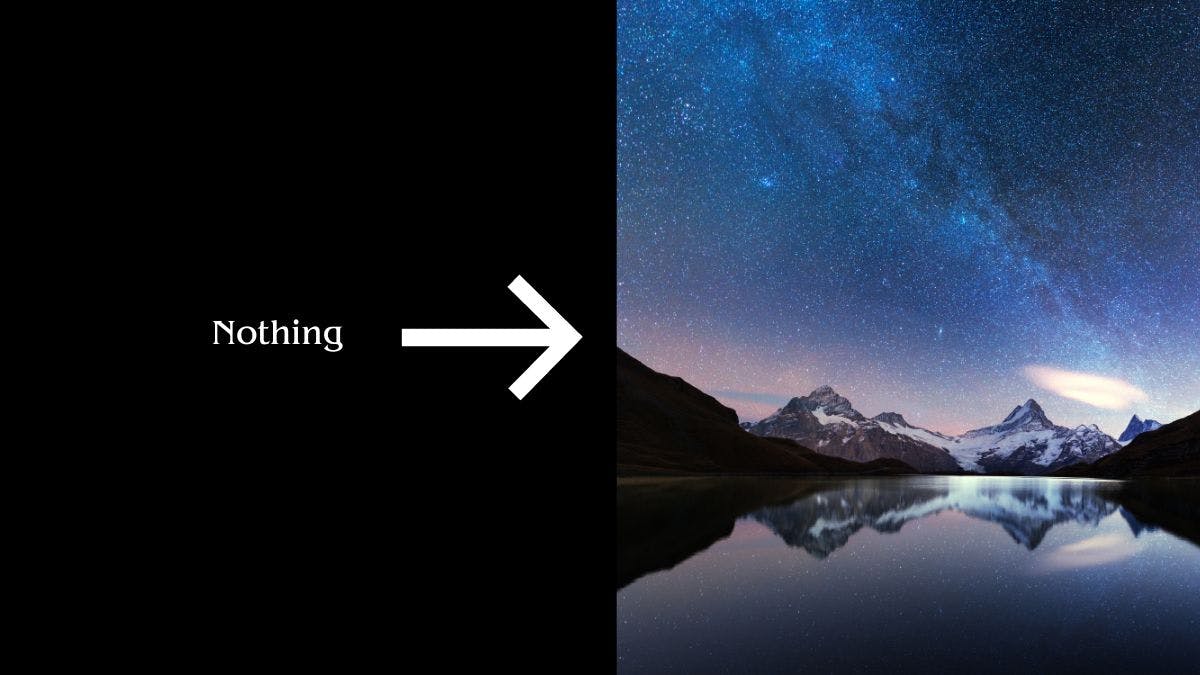The Big Bang
What does the Big Bang theory have to say about God? Why did many atheist scientists originally oppose it?
5 min read

How Scientists Initially Responded
Atheism is not new, despite what some would have you believe. Indeed, there were atheists among the Ancient Greeks. To the point though: for millennia, those who did not believe in God usually believed that the universe has always existed and that matter is all that exists. This position is often called materialism. Therefore, when the origins of the universe were being investigated in the 20th century, many scientists supported the steady state theory and opposed the Big Bang theory, which was proposed by Georges Lemaître—Catholic priest. Some of the story is unfolded briefly in Big Bang by Explore Physics and in more detail in Is Atheism Dead by Eric Metaxas (book).
Nowadays, the Big Bang theory is accepted without question by most scientists and students, yet many of these same people are atheists. I was one of them, wondering how, if the Big Bang theory were true, it was initiated. But this question, which points to a clear answer, is itself treated as unclean or unimportant. Commitment to atheism means that this signature left by the Creator is simply brushed off oftentimes.
The Cause of the Big Bang
If you are a little confused, you might be wondering how the Big Bang theory points to a creator. One reason is that if the universe came into being, it must have had a cause. Materialists could always say that if the universe always existed, it did not need a cause, but since it did not always exist, how was it created? Something obviously could not simply appear out of nothing on its own.
Some credentialed people have misled the masses with poor reasoning, such as trying to redefine nothing to argue that the universe could have come from nothing (in A Universe From Nothing by Lawrence Krauss), but they avoid the issue with deception. They really believe something always existed, which is a different discussion (see Is The Universe Eternal?).
To illustrate the point that something will not come from nothing, if there was a room without any matter (total vacuum), how long would we have to wait for a chair to pop into existence? How long before an entire universe configured perfectly to sustain life appears? The answer, of course, is that neither would ever happen; they are ridiculous ideas. Therefore, based on the Big Bang, something before the universe existed which was capable of producing the entire universe in all its precision, and if you read The First Cause, you will see why this was certainly a supreme being.
Scientific Problems
The first and most essential problem is that it violates the laws of physics no matter what particular view of the theory one holds to. Matter cannot all be condensed into a tiny point. Indeed, Big Bang proponents say that at some point, the laws of physics must not have been operating or must have been different, but this makes the crux of the theory entirely speculative in nature, rather than scientific.
There are other problems too, such as failed predictions and parts of the model that do not match with reality or defy physics. For instance, the Baryon asymmetry problem is that there should be equal parts matter and anti-matter if the theory is sound, but anti-matter is very rare. Star formation is also a massive problem, since gas particles rapidly moving away from the original point should not somehow clump together enough to form a star. Gas normally spreads out and remains that way. A straightforward list explaining a number of these can be seen here.
If we assume the Big Bang happened, insurmountable improbabilities still arise. It is impossible to think that the universe would have unfolded to how it is now by chance. For a relevant example, we can look at the flatness problem. It describes the fact that the total energy density of the universe has to be extraordinarily precise for the universe to be the way it is following the Big Bang. It is called 'unacceptably strange' in one article, and even the Wikipedia article notes the extreme 'coincidence' that this precision shows. (Read this list of fine-tuning parameters).
Almost needless to say, when the probability of the universe having the properties it does at random (without a guiding hand) is so small that it would be madness to consider something mindless and random to be the cause, they must not have been established at random. This is why many have run to the fictional and silly 'multiverse' for escape, which I explain here. I suggest you follow the evidence instead.
The Age of the Universe
Of course, very few religions have a supreme God that created the universe as a central component, and you probably know that the God of the Bible is one of these few. You are also likely to know that according to the Bible, it seems like the universe was not created very long ago, whereas most scientists believe it was created billions of years ago (though the number changes often). This is not an insurmountable obstacle though, even if the universe appears old.
God created a mature universe—one that may appear to be old (mature universe theory). It may sound like a cop-out, but consider this logic: If he wanted to make everything fully formed and functioning, why shouldn't he? After all, was Adam made as a baby? No, he was made as a man with the appearance of age. And remember that this does not undermine the evidence that the universe was created; it just disputes how long ago that happened.
In addition, though some aspects of the universe may indicate age, there are many reasons to suppose that it and the Earth are young, as a Creation Ministries International article explains.